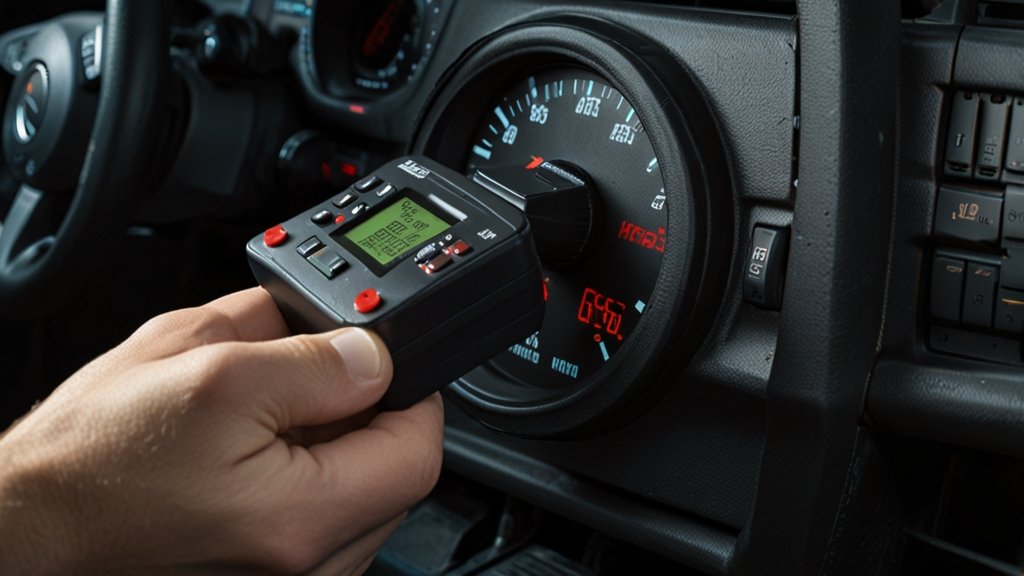What Are C0750 0x4765 and C0765 0x4750 Codes?
The C0750 0x4765 and C0765 0x4750 codes are error messages linked to a vehicle’s Tire Pressure Monitoring System (TPMS). These codes help mechanics identify issues with tire pressure sensors. Specifically, C0750 points to the left front tire sensor, while C0765 relates to the right rear sensor. When triggered, they signal problems like low battery voltage, faulty sensors, or communication errors.
Why Do These Codes Matter?
Tire pressure sensors keep drivers safe by warning about underinflated tires. Ignoring these codes can lead to poor fuel efficiency, tire damage, or even accidents. For example, if a sensor fails, the TPMS warning light stays on, and drivers might miss critical pressure alerts.
Common Causes of C0750 and C0765 Codes
These codes usually appear due to three main issues:
- Dead Sensor Batteries: TPMS sensors use batteries that last 5–10 years. Weak batteries cause inconsistent signals.
- Damaged Sensors: Physical harm (e.g., hitting a curb) can break sensors.
- Communication Errors: Corrosion or wiring issues disrupt signals between sensors and the car’s computer.
Symptoms to Watch For
Drivers may notice:
- A glowing TPMS warning light on the dashboard.
- Incorrect tire pressure readings on the display.
- Frequent false alerts, even when tires are properly inflated.
How to Fix C0750 and C0765 Codes
Fixing these codes involves four steps:
- Scan the Codes: Use an OBD-II scanner to confirm C0750 or C0765.
- Inspect Sensors: Check the left front (C0750) or right rear (C0765) sensor for damage or dirt.
- Test Batteries and Wiring: Replace weak batteries or repair corroded wires.
- Reset the System: Clear the codes and test-drive the vehicle to ensure the issue is resolved.
Comparing C0750 and C0765 Codes
| Feature | C0750 0x4765 | C0765 0x4750 |
|---|---|---|
| Sensor Location | Left Front Tire | Right Rear Tire |
| Common Triggers | Dead battery, physical damage | Wiring issues, signal loss |
| Repair Cost | 50–50–200 (sensor replacement) | 50–50–200 (sensor replacement) |
Preventing Future TPMS Issues
To avoid these codes:
- Check tire pressure monthly.
- Replace sensors every 5–10 years.
- Avoid harsh impacts on tires.
When to See a Mechanic
If DIY fixes don’t work, visit a mechanic. Professionals use advanced tools to diagnose wiring or computer-related problems.
Conclusion
The C0750 0x4765 and C0765 0x4750 codes highlight TPMS sensor issues. Addressing them quickly ensures accurate tire pressure readings and safer driving. Regular maintenance and timely sensor replacements reduce the risk of these errors.
FAQs
- What does the TPMS warning light mean?
The light indicates low tire pressure or a sensor problem. Check tire pressures first, then scan for codes. - Can I drive with a C0750 or C0765 code?
Yes, but not for long. Faulty sensors may provide incorrect readings, risking tire damage. - Can I replace TPMS sensors myself?
Yes, if you have tools and a relearn procedure. Some vehicles require professional programming. - How long do TPMS sensors last?
Typically 5–10 years, depending on battery life and driving conditions. - Why did my code come back after fixing it?
This suggests unresolved issues like wiring faults or a failing control module. Consult a mechanic.
YOU MAY ALSO LIKE: JM379810 Decoded Understanding Its Impact











